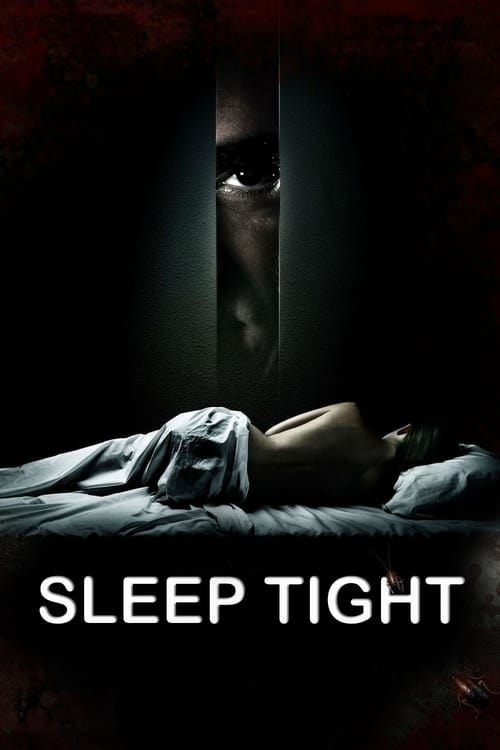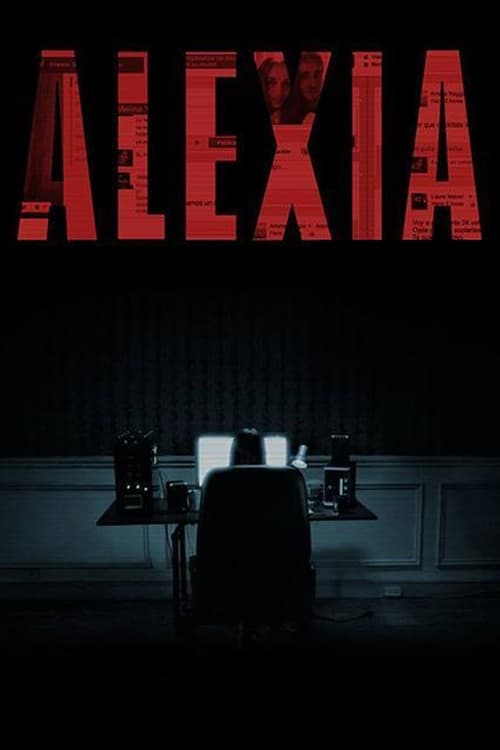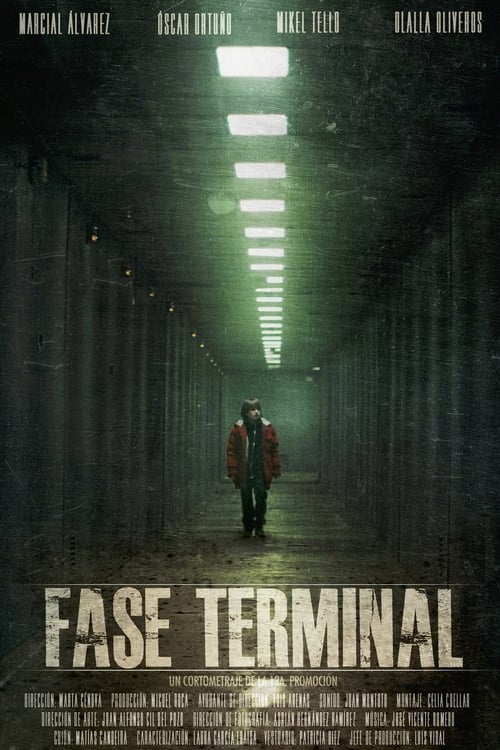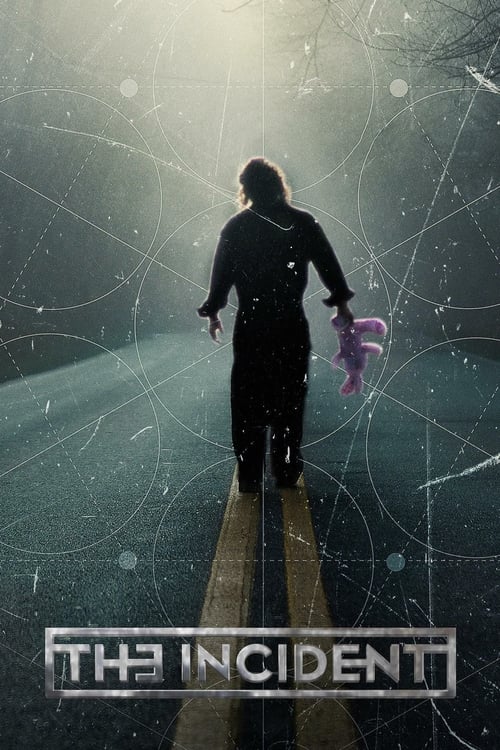
Ask Your Own Question
What is the plot?
Sleep Tight (2011): Complete Plot Narrative
The film opens with a man standing alone on the roof of a Barcelona apartment building, silhouetted against the sky. This is César, the superintendent of the building, and he is delivering a confession to no one in particular--or perhaps to himself. He speaks about his fundamental inability to experience happiness, explaining that no matter what circumstances befall him, no matter what good things happen, he cannot feel joy. This is not temporary depression or a phase he is going through. This is his nature, his essence, the core of who he is. He stands at the edge of the roof, contemplating the void below, and in that moment we understand that César is a man who has contemplated ending his life every single day. Yet something keeps him here--not hope, not purpose, but merely survival instinct. He wakes each morning with no reason to do so, yet he does.
As César descends from the roof and enters the main lobby of the apartment building to begin his work as superintendent, we see a man in his middle years--balding, with thick eyebrows, wearing the uniform of his station. He is late to work, and his supervisor scolds him for it. This small humiliation barely registers on his face. His mother is sick in the hospital, tethered to tubes and monitors, and he visits her regularly. But even these external circumstances--the scolding, the sick mother, the menial job--are not what truly bother him. It is the internal emptiness, the void that cannot be filled, the absence of anything that makes him want to live.
Then he meets Clara.
Clara is a tenant in apartment 5B, and she is everything César is not. She is young, beautiful, and radiantly happy. Her smile is genuine and constant. She moves through the world with a lightness that César cannot comprehend. When César sees her, something shifts in him. Not happiness--he is incapable of that--but purpose. If he cannot be happy, then perhaps he can find meaning in destroying happiness in others. If he cannot smile, then he will make sure that Clara's smile disappears. She becomes his obsession, his reason to wake up in the morning, his mission.
César begins his campaign against Clara methodically and with calculated precision. He uses his position as superintendent to access her apartment without her knowledge or consent. He enters while she sleeps, while she is away, whenever he can gain access. He contaminates her personal care products--the lotions and soaps she uses on her skin--with substances designed to cause harm. Within days, Clara develops painful rashes across her body. She is confused and distressed by this mysterious affliction. She visits doctors, tries different products, but nothing helps. The rashes persist, a physical manifestation of César's invisible violation of her space and her body.
But Clara is resilient. After a few days, the rashes begin to subside. She feels a moment of relief, thinking the problem has resolved itself. This is when César escalates. He deliberately causes a cockroach infestation in her apartment, filling her living space with insects. The psychological torment is now undeniable. Clara cannot stay in her apartment. She leaves to stay with her mother while the building is fumigated.
The police become involved. Someone is clearly harassing Clara, and they begin an investigation. César realizes he is a suspect. He needs to deflect attention. He falsely accuses the son of one of the building's cleaning staff of failing to clean the office properly. The accusation is taken seriously, and the young man is arrested. César has successfully framed an innocent person to protect himself.
While Clara is away, César continues his work in the building. He has also been tormenting other tenants. He deliberately kills the plants of one tenant by refusing to water them, taking pleasure in their anger when they discover the neglect. He even jeopardizes the life of another tenant's dog, Veronica, by feeding it a slice of pie--a small act of cruelty that demonstrates his willingness to harm anyone in the building.
There is another complication in the building: Úrsula, a teenage girl and daughter of another tenant. Úrsula is perceptive and troubled in her own way. She notices César leaving Clara's apartment at odd hours. She puts the pieces together and realizes what he is doing. Rather than report him to the authorities, Úrsula sees an opportunity. She sneaks out of school and goes to César's apartment. She confronts him and threatens to expose him to Clara unless he pays her. She demands €100 for her silence and for the videotape she has--evidence of his activities. César, unable to risk exposure, pays her the hush money. Úrsula now holds power over him, and she uses it to extract money from him regularly.
César visits his mother at the hospital and tells her about Clara, about his progress in making her miserable. His mother lies in her hospital bed, incapacitated and helpless, while her son confides his obsession with destroying another human being. He tells her that he is close to wiping Clara's smile off her face, that his goal is within reach.
But then Clara returns to the apartment. The fumigation is complete, and she comes back to her home. She is not alone. She brings Marcos, her boyfriend, with her. Marcos is handsome and present, and he represents a complication in César's plans. The couple has been planning a trip together, but they have returned early because Clara has discovered something: she is pregnant. Four weeks pregnant. Marcos is shocked by this revelation because he always used a condom when they had sex. He is certain of this fact. Yet Clara is pregnant. The implication hangs in the air--César's drugging of Clara, his repeated violations of her unconscious body, may have resulted in this pregnancy.
That night, César makes a decision. He enters Clara's apartment again and hides under her bed. He lies there in the darkness, waiting. When Clara and Marcos return to the bedroom, they begin to make love. This is one of the most disturbing scenes in the film. César lies beneath them, hidden, watching, listening. As they move together on the bed above him, César is accidentally exposed to chloroform--perhaps from something Marcos is wearing, perhaps from something in the room. The chemical burns his face and eyes. He is in pain and disoriented. He needs to leave the apartment immediately, but in his panic and confusion, he realizes he has the wrong keys. He is trapped inside the apartment with the couple above him.
He waits, suffering, until they finish and fall asleep. Then he attempts to escape. He moves quietly through the apartment, trying different keys, trying to find a way out. Finally, he manages to unlock the door and slip out into the hallway. He descends to his own apartment, his face burned, his pride wounded, but his obsession undiminished.
Days pass. Marcos becomes suspicious. He has noticed things--small inconsistencies, strange occurrences in the apartment, the way Clara sometimes seems confused or disoriented. He begins to investigate. He searches César's apartment and finds the drugs that César has been using to incapacitate Clara. He finds the evidence of César's crimes. Marcos now understands the truth: the superintendent has been breaking into their apartment, drugging his girlfriend, and violating her in ways that Marcos cannot fully comprehend.
Marcos goes to César's apartment and confronts him directly. He tells César that he knows what he has been doing. He tells him to check Clara's apartment because there is a bug problem--but this is a trap. Marcos is waiting for César, ready to confront him, ready to stop him.
When César arrives at the apartment, Marcos is there. The two men face each other. Marcos is angry and protective, but he is also shocked by what he has discovered. César is cornered, his crimes exposed, his mission compromised. The two men begin to fight. It is a desperate, violent struggle. César is smaller than Marcos, less physically imposing, but he is driven by something primal--the need to survive, the need to maintain control.
During the fight, César grabs a piece of glass. In a moment of pure desperation and rage, he raises it and stabs Marcos in the neck. The glass pierces his skin, cuts through tissue and blood vessels. Marcos falls. He is dying, and then he is dead. César has committed murder.
César stands over Marcos's body, breathing heavily, understanding the magnitude of what he has done. He has crossed a line from which there is no return. He is no longer merely a harasser, a violator, a psychological torturer. He is a murderer.
But there is a witness. Úrsula knows what César has done. She has seen something, or she has pieced together enough to understand that Marcos is dead and that César is responsible. She holds this knowledge like a weapon. César realizes that Úrsula is now a threat to his freedom. She could go to the police. She could tell them everything--about the harassment, about the drugging, about the murder.
César sneaks into Úrsula's apartment. He finds her and confronts her directly. He threatens her. He tells her that if she reveals what she knows, if she goes to the police, he will ensure that he does not go to jail. The threat is implicit and terrifying. He is a man who has already killed once. He is a man who has nothing left to lose. Úrsula, young and frightened, agrees to keep silent. She will not tell anyone what she knows. She will not expose César to the authorities.
And then the film ends. There is no arrest. There is no justice. There is no resolution in the traditional sense. César remains in the apartment building. Clara is left pregnant with a murdered boyfriend and no understanding of the full extent of what has been done to her. Marcos is dead, killed by the man who was supposed to maintain the building and keep its residents safe. Úrsula carries the burden of her knowledge, silenced by fear. The innocent cleaner's son remains arrested for a crime he did not commit--the cockroach infestation that César orchestrated.
César escapes any legal repercussions for his crimes. He avoids arrest, avoids prosecution, avoids punishment. Life goes on. He continues to work as the superintendent of the building. He continues to live in his apartment. He continues to exist in the same space as Clara, the woman he has tormented, drugged, violated, and whose boyfriend he has murdered. The film offers no catharsis, no comeuppance, no moment of justice. Instead, it presents a bleak vision of a predator who successfully evades accountability, who commits the ultimate crime and faces no consequences, who continues to inhabit the spaces where his victims live.
The final image is of César, still in the building, still in control, still free. His mission to make others miserable has succeeded beyond even his own expectations. He has destroyed Clara's happiness, destroyed her relationship, destroyed her boyfriend's life. He has framed an innocent person. He has blackmailed a teenager into silence. He has murdered a man and threatened a witness. And he has gotten away with all of it.
The film ends not with resolution but with horror--the horror of recognizing that evil can persist, that predators can thrive, that the system designed to protect people can fail so completely that a man who has committed such atrocities can simply continue living his life, unchanged and unpunished, in the very building where his crimes took place. César stands in the lobby of the apartment building, the superintendent, the man in charge, the man who controls access to everyone's homes. And no one knows the truth. No one can stop him. He is free.
What is the ending?
In the ending of "Sleep Tight," the main character, César, is confronted by the consequences of his actions. After a series of disturbing events, he is ultimately caught by the police. The film concludes with a haunting sense of inevitability as César faces the repercussions of his obsessive behavior.
As the final scenes unfold, César, who has been secretly tormenting his neighbor Clara, finds himself in a precarious situation. The tension escalates when Clara's boyfriend, who has been suspicious of César, begins to piece together the unsettling occurrences surrounding Clara. The boyfriend confronts César, leading to a violent altercation. In a desperate attempt to maintain control, César resorts to extreme measures, but his plans unravel as the police arrive on the scene.
In the climax, César is apprehended, and the weight of his actions crashes down upon him. The film closes with a chilling image of César, now trapped by his own compulsions, leaving the audience with a lingering sense of dread and the stark reality of his fate.
Expanding on the ending, the scene begins with César in his apartment, the dim lighting casting shadows that mirror his dark intentions. He is restless, pacing back and forth, his mind racing with thoughts of Clara. The camera captures his internal struggle, showcasing the conflict between his desire for connection and the twisted methods he employs to achieve it.
As the night deepens, Clara's boyfriend, who has been increasingly wary of César's behavior, decides to confront him. The scene shifts to the hallway outside César's apartment, where the tension is palpable. The boyfriend knocks on César's door, and the sound echoes ominously. César, caught off guard, hesitates before opening the door, revealing a façade of calm that belies his inner turmoil.
The confrontation escalates quickly. The boyfriend accuses César of stalking Clara, his voice rising with anger and fear. César, feeling cornered, tries to deflect the accusations, but his nervousness betrays him. The camera zooms in on César's face, capturing the flicker of panic in his eyes as he realizes that his carefully constructed world is crumbling.
In a moment of desperation, César lashes out, leading to a physical struggle between the two men. The fight spills into the hallway, and the chaos draws the attention of other residents. The sound of shouts and scuffling feet fills the air, heightening the sense of urgency. Just as César seems to gain the upper hand, the police arrive, their sirens piercing through the night.
The scene shifts dramatically as the police burst into the building, their presence a stark contrast to the chaos of the fight. They quickly assess the situation, and César, realizing he has lost control, attempts to flee. However, the officers are swift, apprehending him before he can escape. The camera captures the moment of his arrest, focusing on his expression--a mix of fear, anger, and resignation.
As César is led away in handcuffs, the weight of his actions hangs heavy in the air. The final shot lingers on Clara, who stands in the doorway of her apartment, her face a mixture of relief and horror. She has been freed from César's torment, but the emotional scars remain. The film closes with a haunting silence, leaving the audience to grapple with the consequences of obsession and the fragility of trust.
In the end, César's fate is sealed as he faces the legal repercussions of his actions, while Clara and her boyfriend are left to rebuild their lives, forever changed by the ordeal. The film concludes with a chilling reminder of the darkness that can lurk beneath the surface of seemingly ordinary lives.
Is there a post-credit scene?
The movie "Sleep Tight," directed by Jaume Balagueró, does not have a post-credit scene. The film concludes with a tense and unsettling ending that leaves the audience with a lingering sense of dread. The story wraps up with the main character, César, facing the consequences of his actions, and the final moments are designed to evoke a strong emotional response rather than provide additional content or resolution in a post-credit sequence. The focus remains on the psychological horror and the disturbing nature of César's character throughout the film.
What motivates the character César to torment Clara throughout the film?
César, the building's concierge, is driven by a deep-seated loneliness and a desire for connection. His obsession with Clara stems from his inability to form genuine relationships, leading him to derive a twisted sense of satisfaction from invading her privacy and manipulating her life.
How does César's relationship with his mother influence his actions in the film?
César's relationship with his mother is fraught with emotional turmoil. Her disapproval and the guilt he feels about her condition fuel his need for control and power over others, particularly Clara. This dynamic reveals his deep-seated issues with intimacy and affection, which manifest in his disturbing behavior.
What specific actions does César take to invade Clara's privacy?
César employs various methods to invade Clara's privacy, including sneaking into her apartment while she sleeps, tampering with her belongings, and even using her personal items to create a false sense of intimacy. These actions highlight his obsession and the lengths he will go to maintain his twisted connection with her.
How does Clara's character evolve throughout the film in response to César's actions?
Initially, Clara is portrayed as a vibrant and carefree woman, but as César's torment escalates, she becomes increasingly anxious and paranoid. Her emotional state deteriorates as she struggles to understand the source of her fear, leading her to question her own sanity and ultimately forcing her to confront the reality of her situation.
What role does the setting of the apartment building play in the story?
The apartment building serves as a claustrophobic backdrop that amplifies the tension and isolation experienced by both César and Clara. Its confined spaces and dimly lit hallways create an atmosphere of dread, making it a character in itself that reflects César's oppressive nature and Clara's entrapment.
Is this family friendly?
"Sleep Tight," produced in 2011, is not considered family-friendly. The film contains several potentially objectionable or upsetting scenes that may be distressing for children or sensitive viewers.
-
Psychological Manipulation: The film explores themes of obsession and manipulation, which may be unsettling for younger audiences.
-
Violence and Threats: There are scenes that depict violence or threats, creating a tense and frightening atmosphere.
-
Disturbing Imagery: The film includes unsettling visuals that may evoke fear or anxiety.
-
Themes of Isolation and Despair: The protagonist experiences deep emotional turmoil, which may be difficult for sensitive viewers to process.
-
Invasion of Privacy: The central premise involves a character invading another's personal space, which can be disturbing and evoke feelings of vulnerability.
These elements contribute to a dark and suspenseful narrative that is more suitable for mature audiences.

















![[REC]⁴ Apocalypse (2014) poster](https://image.tmdb.org/t/p/w500/nlSSZNESHkY1iPzYnpcRvYUr7Mz.jpg)














